Email marketing terms and conditions
Email marketing is an important component of a comprehensive online marketing strategy, allowing as it does direct access to interested customers and prospects. However, there are risks with email marketing. Laws regulate the sending of bulk/commercial emails, and also the processing of personal data, which can include email addresses as well as individual names. With respect to personal data processing, this document has been designed to help the parties comply with the GDPR.
These T&Cs can be used in relation to both: (i) managed email marketing services; and (ii) the provision of a hosted email marketing platform for use by the customer.
This T&Cs document is designed to help the service provider and/or the customer to manage the risks associated with a contract for email marketing services. It is very similar in content to our email marketing agreement, but takes a slightly different form, with a set of T&Cs at the front and a statement of work at the back. An acceptable use policy (for any email marketing platform) is also included.
Email marketing terms and conditions contents
- Definitions: definitions.
Term : commencement of term; end of term; each contract distinct.Email Marketing Services : obligation to provide email marketing services; email marketing lists provided byClient.Email Marketing Platform : availability of email marketing platform ; functionality of email marketing platform; email marketing platform and acceptable use policy; informal definition of uptime (email marketing platform); uptime commitment (email marketing platform); measurement of uptime; reporting of uptime measurements; scheduled maintenance to email marketing platform; list of exceptions to availability commitment.- Clientobligations: general second party obligations;Clientweb marketing obligations; web marketing resources consequences.
- ClientMaterials: supply of second party materials; licence ofClientmaterials; warranties relating to second party materials.
Online Accounts :Provideronline accounts;Clientonline accounts; new online accounts; online accounts: parties may agree derogations from defaults.Intellectual Property Rights : assignment of intellectual property rights in deliverables; licence to use deliverables; mixed assignment and licence of rights; licensing of third party materials; waiver of moral rights in deliverables; further assurance (intellectual property).- Reputation and goodwill: protection of second party reputation and goodwill; protection of first party reputation and goodwill.
- Charges: obligation to pay charges; time-base charges limitations; amounts inclusive or exclusive of VAT; variation of charges.
- Timesheets: obligation to keep timesheets; obligation to supply timesheets.
- Payments: issue of invoices; time for payment of charges following invoice; payment methods; interest on late payments.
- Confidentiality obligations: first party confidentiality undertaking; second party confidentiality undertaking; disclosure of confidential information to certain persons; exceptions to confidentiality obligations; disclosures of confidential information mandated by law etc; parties to stop using confidential information upon termination; parties to delete confidential information following termination; confidentiality obligations after termination.
- Data protection: compliance with data protection laws; warranty of Client's right to disclose personal data (GDPR); details of personal data and purposes of processing bythe Provider(GDPR); duration of personal data processing byProvider(GDPR); personal data processed byProvideron instructions (GDPR); authorised international transfers of personal data (GDPR); informingClientof illegal instructions (GDPR); personal data processed byProvideras required by law (GDPR); confidentiality obligations onProviderpersons processing personal data (GDPR); security of personal data processed byProvider(GDPR); appointment of sub-processor byProvider(GDPR); authorisation forProviderto appoint sub-processors (GDPR);Providerto assist with exercise of data subject rights (GDPR);Providerto assist with compliance (GDPR); obligation to notifyClientof personal data breach (GDPR);Providerto provide data protection compliance information (GDPR); deletion of personal data byProvider(GDPR);Providerto allow audit (GDPR); changes to data protection law.
- Warranties: standard of services; first party general warranties; second party warranty of authority; exclusion of implied warranties and representations.
- Indemnities: indemnity upon breach: any provision or specified provisions (with definition); conditions upon first party indemnity; indemnity upon breach: any provision or specified provisions (with definition); conditions upon second party indemnity; limitations of liability vs indemnities.
- Limitations and exclusions of liability: caveats to limits of liability; interpretation of limits of liability; no liability for force majeure; no liability for loss of profits; no liability for loss of revenue; no liability for loss of use; no liability for loss of opportunities; no liability for loss of data or software; no liability for consequential loss; per event liability cap upon services contract; aggregate liability cap upon services contract.
Force Majeure Event : obligations suspended for force majeure; force majeure notification and information; mitigation of effects of force majeure.- Termination: termination without cause (optionally asymmetric); termination by either party without cause; termination upon breach; termination upon insolvency; termination upon non-payment.
- Effects of termination: surviving provisions upon termination; termination does not affect accrued rights; Clientdatasets upon termination.
- Status of Provider: first party is independent contractor not employee; no redundancy or compensation.
- Notices: contractual notices must be in writing; methods and deemed receipt of contractual notices; substitute contact details for notices.
- Subcontracting: no subcontracting without consent; subcontracting permitted; first party responsible for subcontracted obligations.
- General: no waiver; severability; variation written and signed; no assignment without written consent; no third party rights; entire agreement; governing law; exclusive jurisdiction.
- Interpretation: statutory references; section headings not affecting interpretation; calendar month meaning; no ejusdem generis.
SCHEDULE 1 (ACCEPTABLE USE POLICY)
- Introduction: definitions for acceptable use policy; parties to policy; agreement to policy by using services; express agreement to policy; services user minimum age under policy.
- No spam: no spam in user content; sending spam using email addresses; no promotion of marketing schemes.
- General usage rules: no damaging use of services; no unlawful use of services; content must comply with provisions of part.
- Unlawful
Content : no unlawful user content: general prohibition; no unlawful user content: specific prohibitions; previous complaints and user content. - Graphic material: age suitability of user content; no violence in user content; no pornographic user content.
- Monitoring: acknowledgement relating to monitoring.
- Harmful software: no harmful software; no risky software.
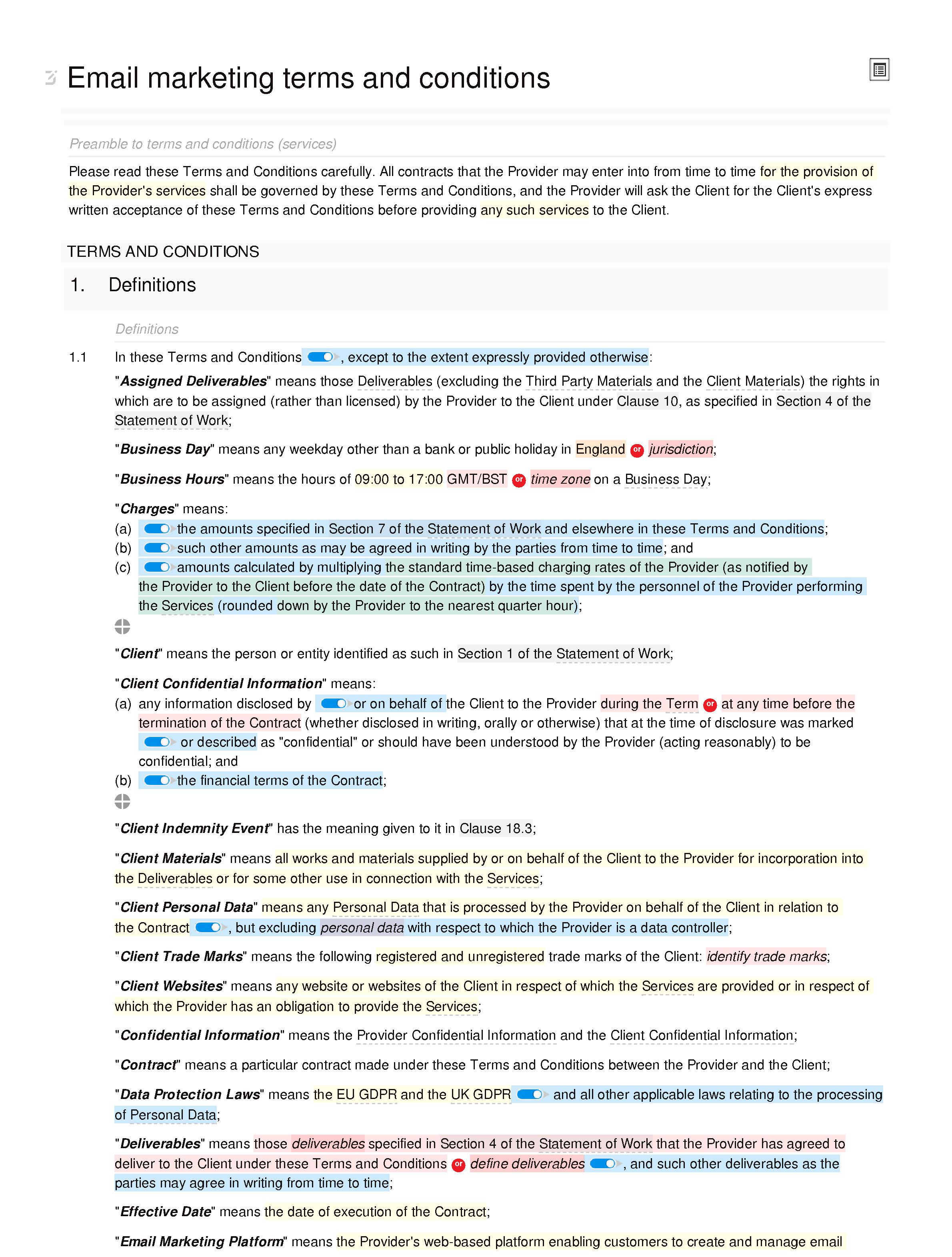
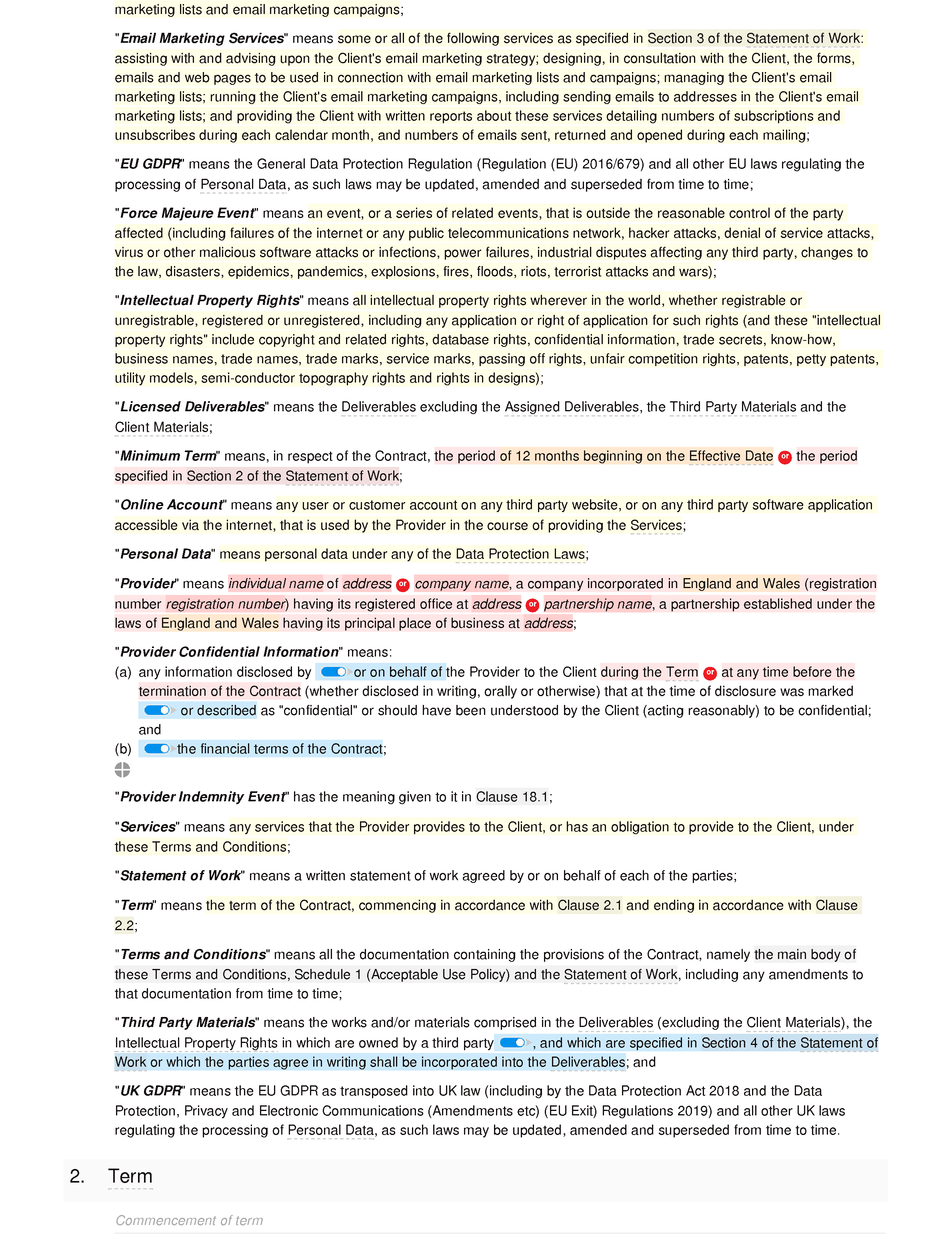
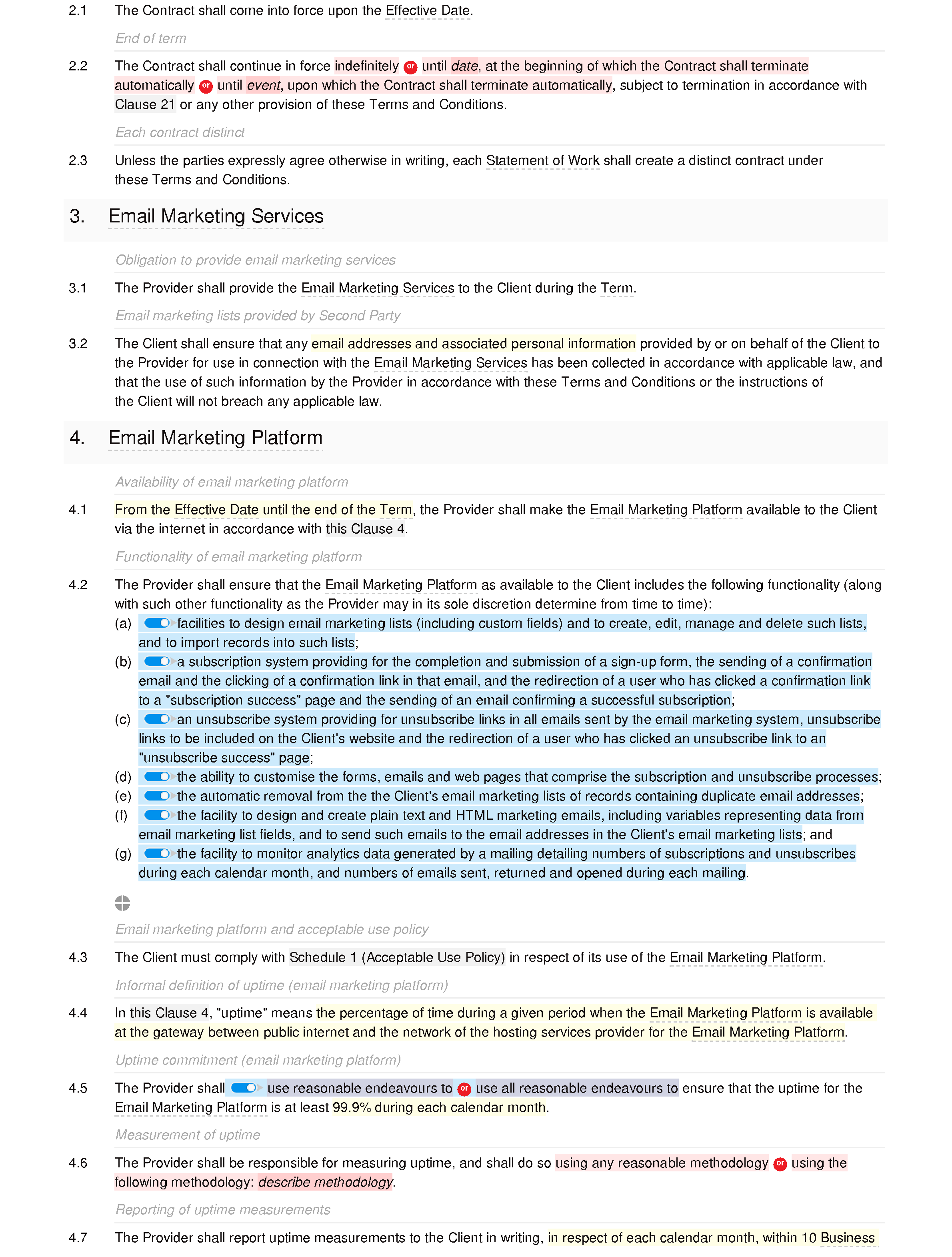
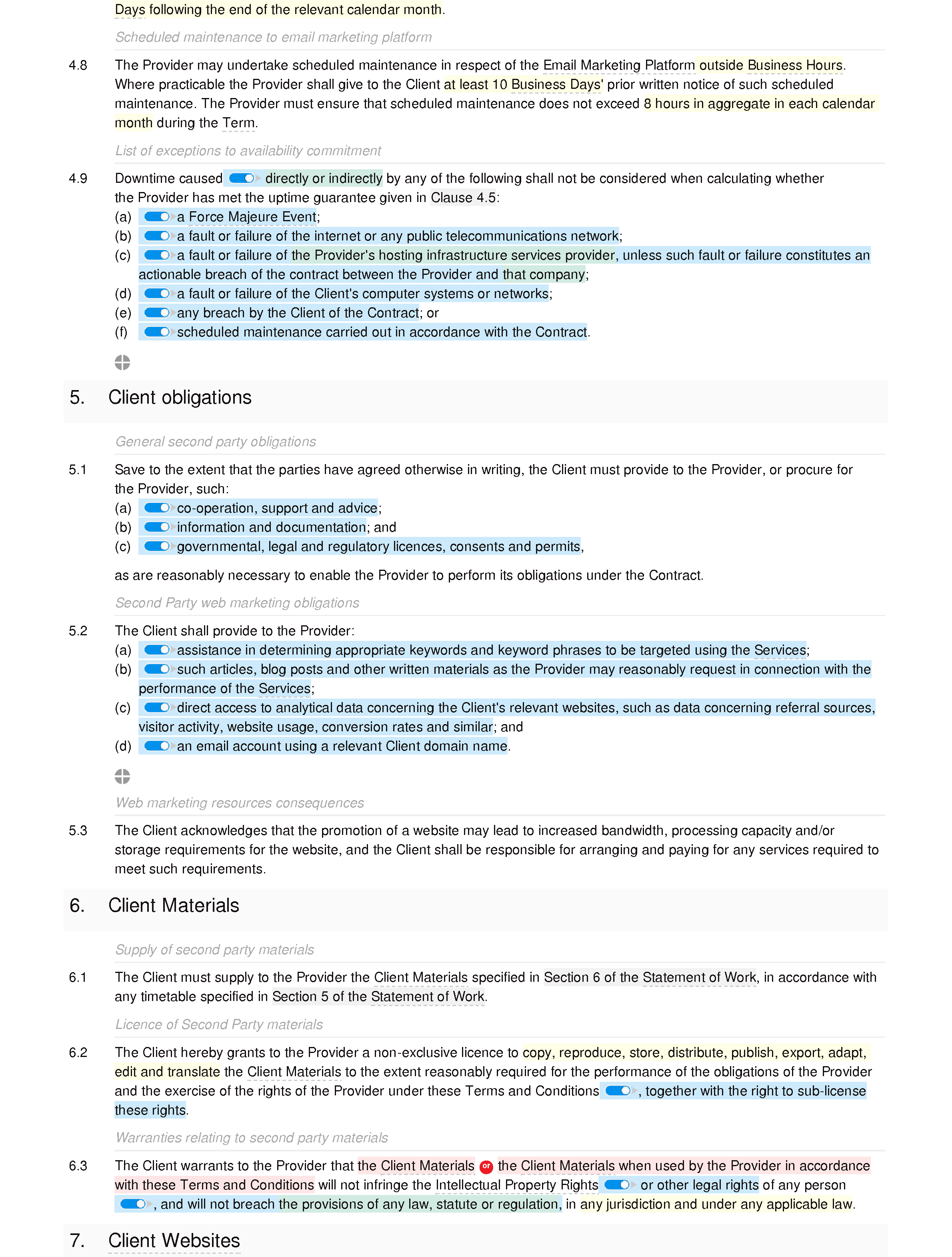
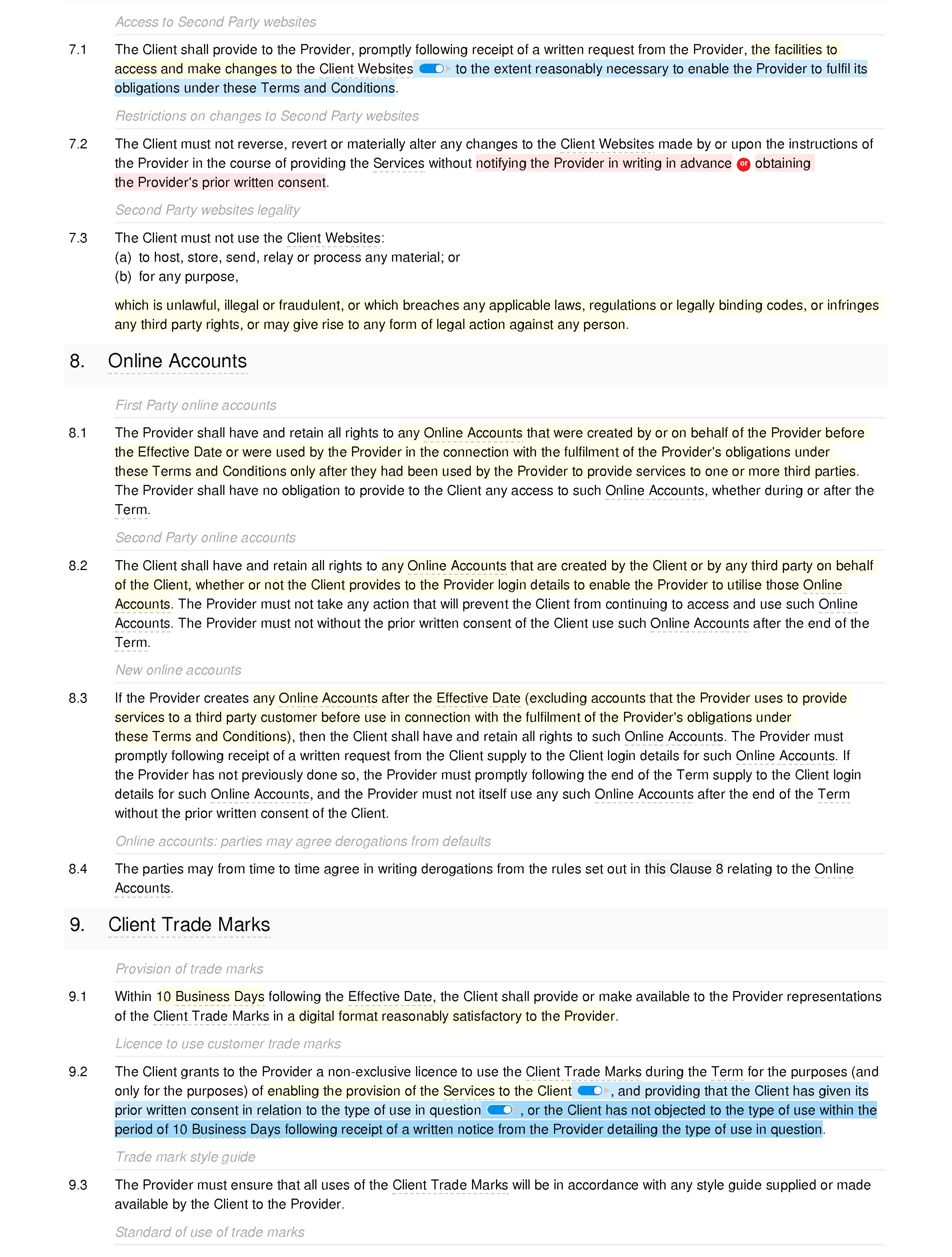
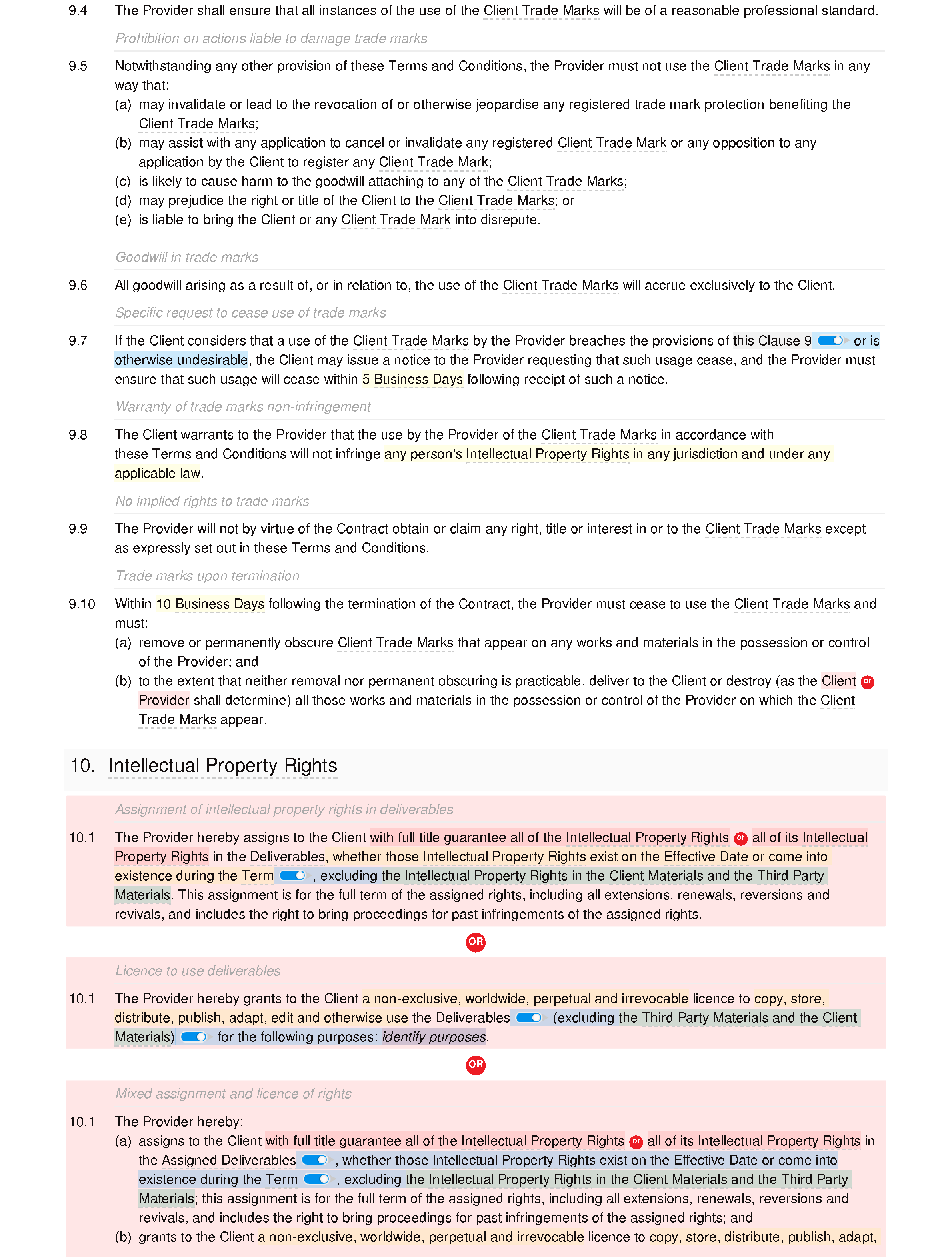
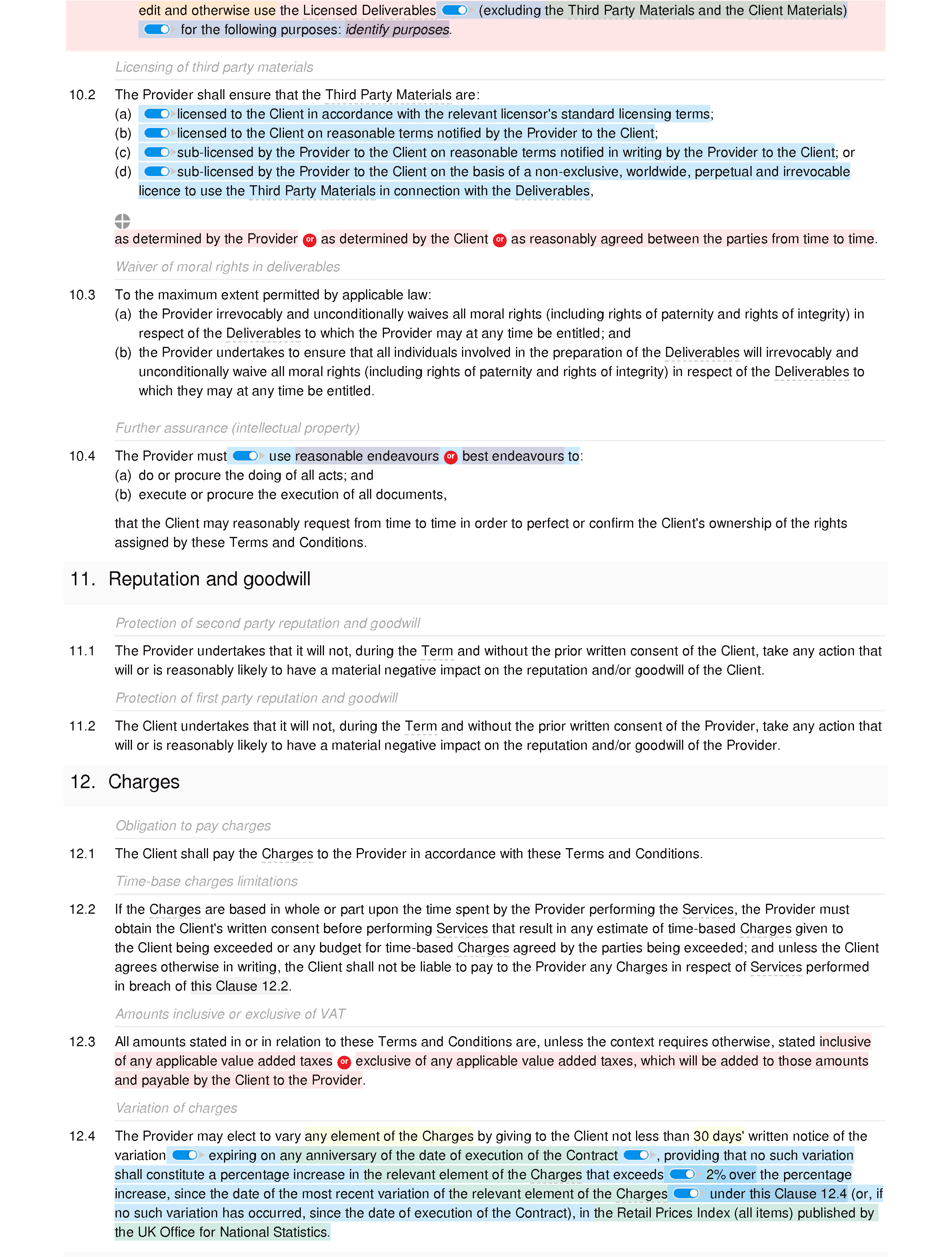
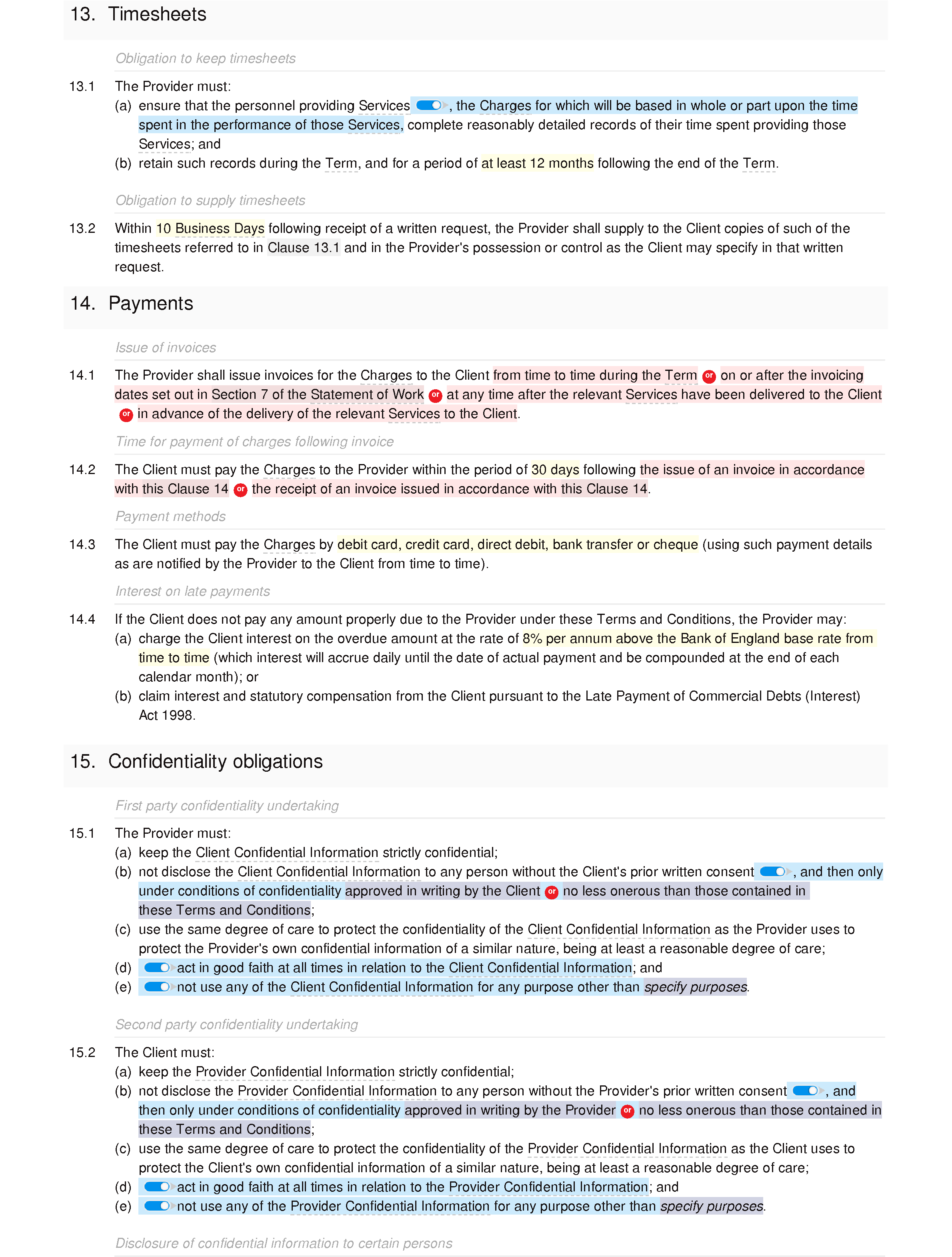
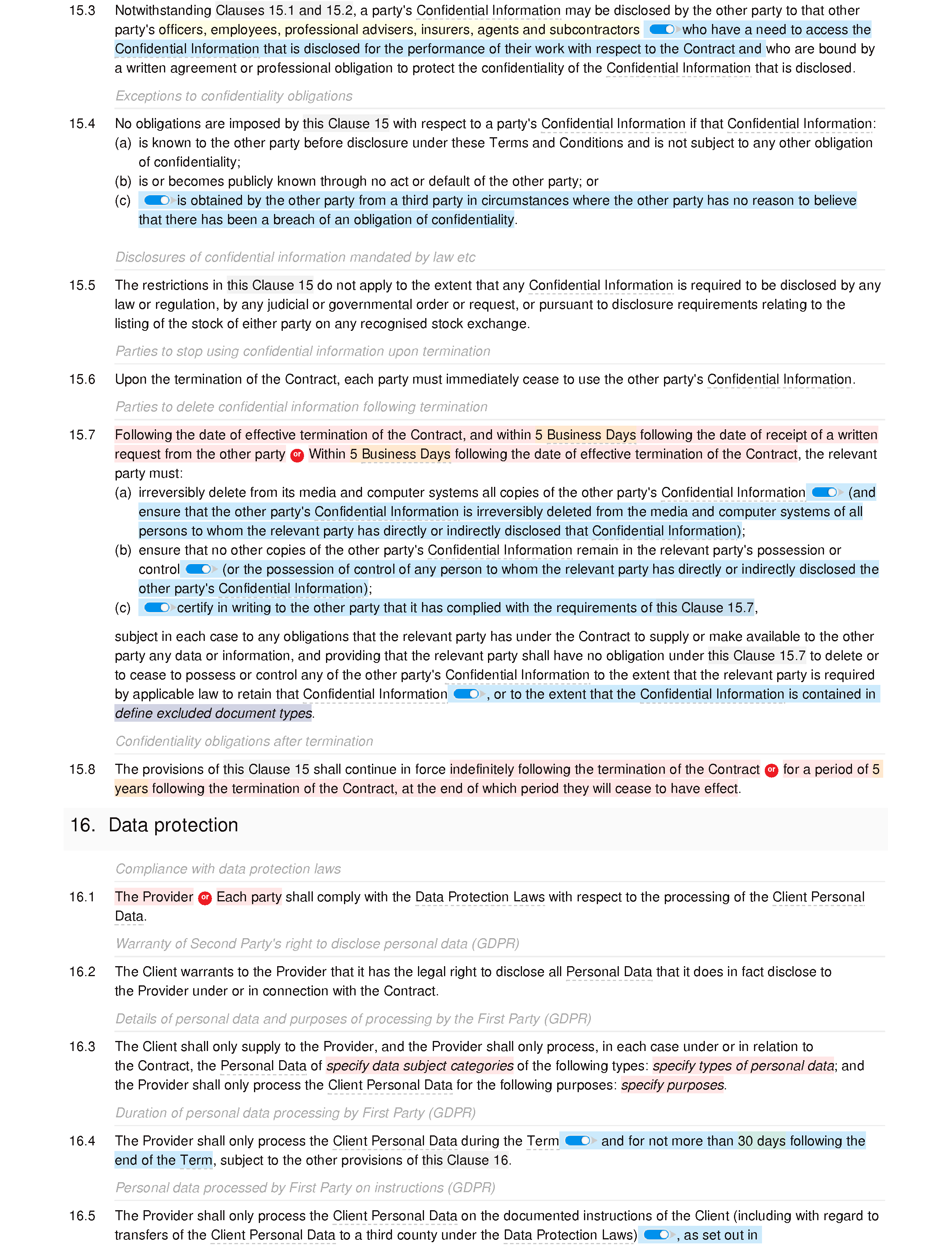
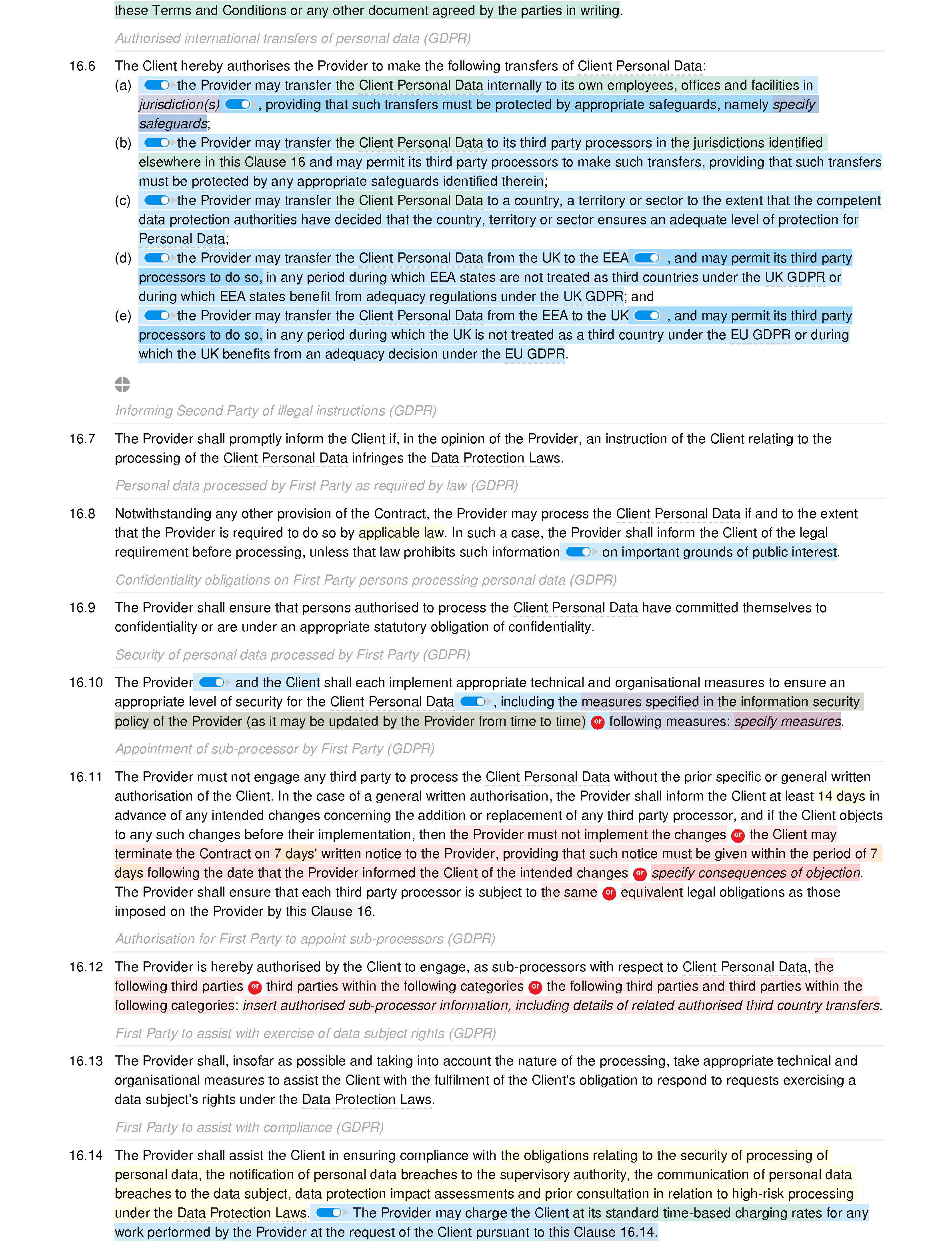
This is a shortened preview of the editor interface; once you create your instance you'll be able to edit the full document in our online editor.










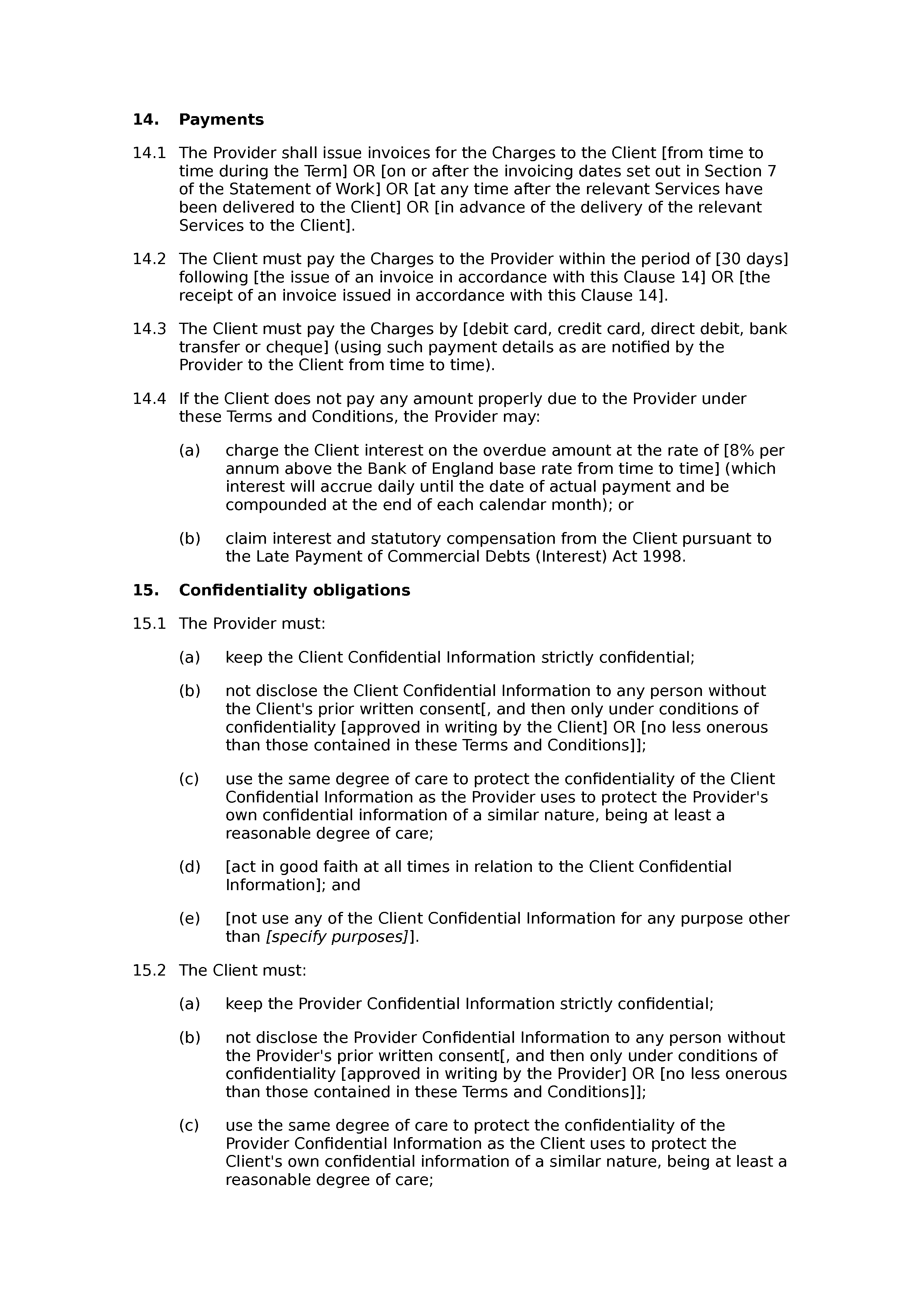
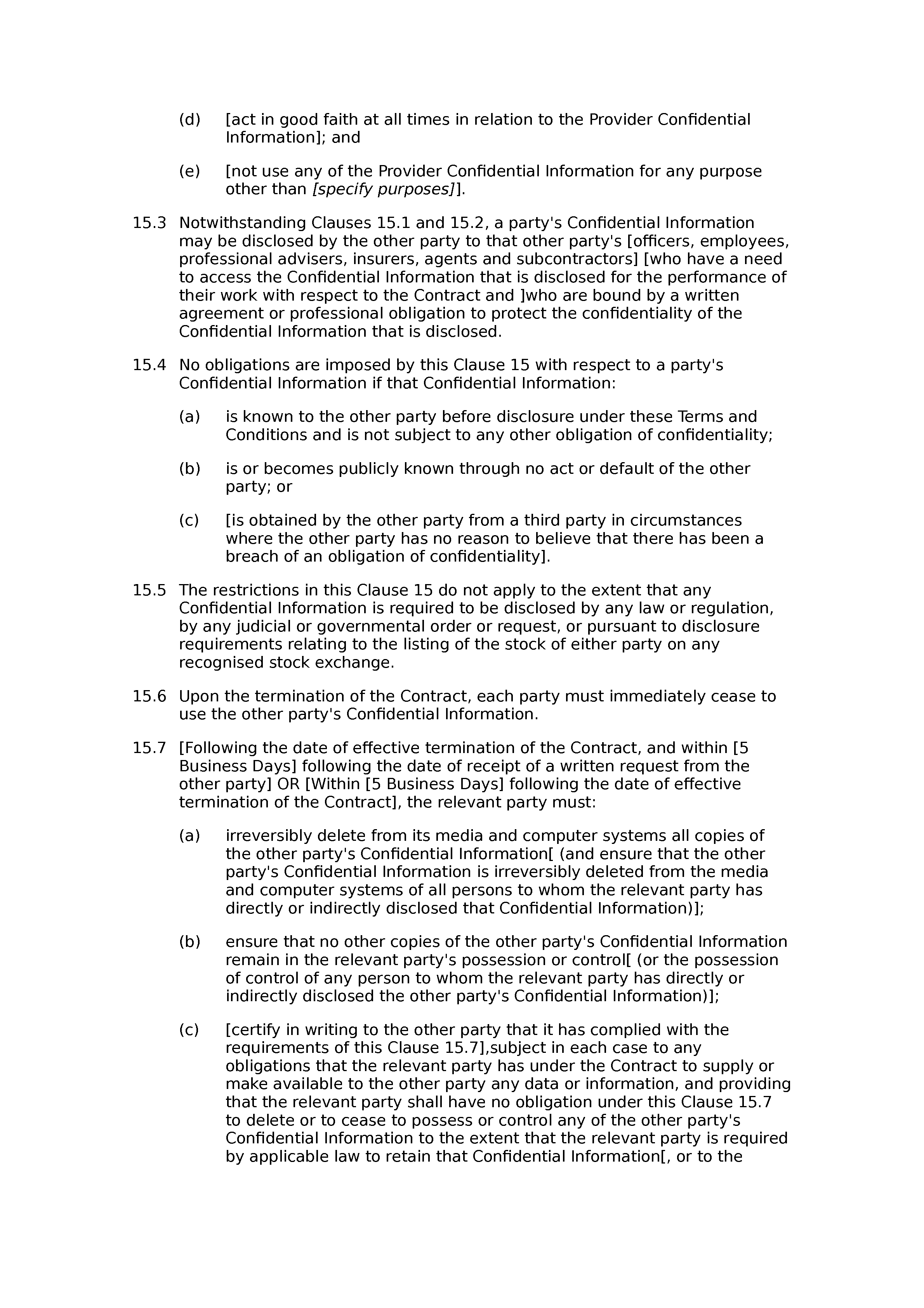
This is a shortened preview of the DOCX output; once you create your instance you'll be able to download the full document in PDF, HTML, RTF and/or DOCX (Microsoft Word) format.

